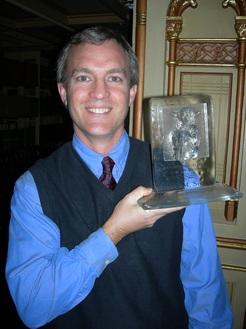Graduate Students
There are many opportunities for doing research in the Singer laboratory. Professor Singer accepts PhD students through the Department of Biology Ph.D. program as well as the Global Infectious Disease Ph.D. program. Interested students can apply to either or both programs through the Graduate School of Arts & Sciences. The coursework, teaching and examination requirements differ between the programs, so prospective students are encouraged to review them online and to discuss the options with Professor Singer before applying.
Undergraduate Students
Prof. Singer has mentored over 25 undergraduates in research while at Georgetown. The majority have done work on the immunology of giardiasis and several have been included as co-authors on published work. Students typically work in the laboratory for a minimum of 2 years, including at least one summer. Several students have even joined the laboratory as freshman. Students have received transcript fellowships through GUROP, from the Biology Department, and from the Crohn’s and Colitis Foundation of America. Students can also receive transcript notations through GUROP and academic credit through BIOL 300 (Research Tutorial) and BIOL 341 and 342 (RISE).
The main requirement for joining the laboratory is a strong desire to participate in research and to go beyond what you learn in classes. Most of the immunology we investigate isn’t actually covered in the immunology textbooks anyway, so taking the class in advance is not required. Most students spend 10-12 hours per week in the laboratory during the academic year and 30-60 hours per week during the summers. Many projects involve working with mice, although projects can be developed that do not require using animals.
The main requirement for joining the laboratory is a strong desire to participate in research and to go beyond what you learn in classes. Most of the immunology we investigate isn’t actually covered in the immunology textbooks anyway, so taking the class in advance is not required. Most students spend 10-12 hours per week in the laboratory during the academic year and 30-60 hours per week during the summers. Many projects involve working with mice, although projects can be developed that do not require using animals.


